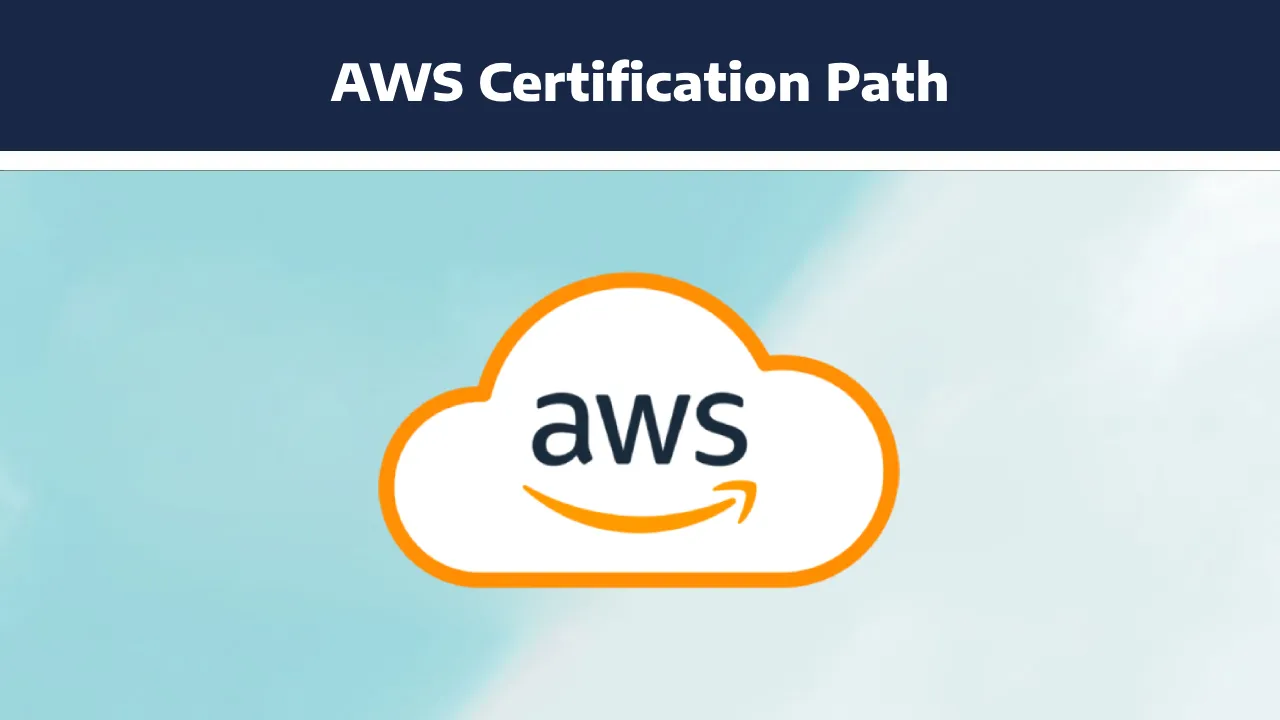Navigating the AWS Certification Path: A Comprehensive Guide
Amazon Web Services (AWS) certifications are widely recognized credentials that validate expertise in various aspects of cloud computing. The AWS certification path provides individuals with a structured framework to enhance their skills and demonstrate proficiency in designing, deploying, and managing AWS solutions. In this comprehensive guide, we will explore the AWS certification path, discussing each certification level, specialization, and best practices for successful certification.
1. Introduction to AWS Certifications
AWS offers certifications across different roles, catering to individuals with various levels of experience and expertise. AWS certifications are categorized into four levels, each representing a specific skill set and depth of knowledge.
1.1 Foundational Level - AWS Certified Cloud Practitioner
The AWS Certified Cloud Practitioner certification is designed for individuals with non-technical backgrounds or those who are new to AWS. It validates basic knowledge of AWS services, the cloud, and the AWS Global Infrastructure.
1.2 Associate Level Certifications
The Associate level certifications target individuals with some hands-on experience using AWS services. There are three certifications at this level:
AWS Certified Solutions Architect – Associate: Focuses on designing distributed systems and applications on AWS.
AWS Certified Developer – Associate: Validates proficiency in developing and maintaining AWS applications.
AWS Certified SysOps Administrator – Associate: Examines skills related to system operations on AWS, emphasizing operational excellence.
1.3 Professional Level Certifications
Professional level certifications are suitable for individuals with extensive experience in architecting and operating AWS solutions. There are two certifications at this level:
AWS Certified Solutions Architect – Professional: Builds on the associate-level certification, testing advanced skills in designing distributed systems on AWS.
AWS Certified DevOps Engineer – Professional: Focuses on DevOps practices, emphasizing the automation and optimization of AWS applications.
1.4 Specialty Certifications
Specialty certifications target specific domains within the AWS ecosystem. As of my last knowledge update in January 2022, there are five specialty certifications:
AWS Certified Advanced Networking – Specialty: Validates advanced networking skills on AWS.
AWS Certified Security – Specialty: Focuses on security best practices and implementation of secure applications on AWS.
AWS Certified Machine Learning – Specialty: Examines skills related to machine learning and artificial intelligence on AWS.
AWS Certified Database – Specialty: Validates skills in designing, recommending, and maintaining AWS database solutions.
AWS Certified Data Analytics – Specialty: Focuses on designing and implementing AWS analytics services.
2. Best Practices for AWS Certification Success
2.1 Hands-On Experience
Hands-on experience with AWS services is crucial for success in AWS certifications. Utilize the AWS Free Tier to explore and practice using various services in a risk-free environment.
2.2 Training and Documentation
AWS offers extensive documentation and training resources. Official AWS training courses, whitepapers, and FAQs provide in-depth knowledge needed for certification exams.
2.3 Exam Readiness Workshops
AWS offers Exam Readiness Workshops, providing insights into the exam structure, question formats, and content domains. These workshops can enhance your exam preparedness.
2.4 Practice Exams
Take advantage of practice exams to familiarize yourself with the exam format and identify areas for improvement. AWS provides official practice exams for each certification.
2.5 Join the AWS Community
Engage with the AWS community through forums, social media, and local user groups. Networking with peers and experts can provide valuable insights and support.
2.6 Continuous Learning
AWS regularly updates its services and certifications. Stay informed about new features and best practices by participating in webinars, attending re:Invent conferences, and subscribing to AWS blogs.
3. Exam Registration and Logistics
3.1 Registering for Exams
Visit the AWS Certification website to register for exams. Select a suitable exam location and time, considering factors such as time zone and personal preferences.
3.2 Exam Format
AWS certification exams typically consist of multiple-choice questions, multiple-answer questions, and case studies. The exam format varies based on the certification level.
3.3 Exam Duration and Passing Scores
Each AWS certification exam has a specific duration, ranging from 80 to 180 minutes. Passing scores vary by exam, and candidates receive results immediately upon completion.
3.4 Exam Preparation Checklist
Ensure a stable internet connection.
Verify system requirements for online exams.
Familiarize yourself with the exam interface using the AWS practice exam.
4. Post-Certification Benefits and Next Steps
4.1 Digital Badges
Upon successfully completing an AWS certification, you receive a digital badge that you can share on your resume, LinkedIn profile, and other professional platforms.
4.2 Maintaining and Renewing Certifications
AWS certifications are valid for three years. To stay current, consider earning recertification by passing the current version of the exam or achieving a higher-level certification.
4.3 Explore Advanced Certifications
Once you've attained foundational and associate-level certifications, consider progressing to professional and specialty certifications based on your career goals and interests.
Conclusion
The AWS certification path provides a structured and comprehensive framework for individuals to validate their expertise in cloud computing. Whether you're just starting or looking to advance your career, AWS certifications offer a roadmap to success. By combining hands-on experience, training resources, and best practices, you can navigate the AWS certification path with confidence and demonstrate your proficiency in architecting, operating, and optimizing AWS solutions. Keep abreast of AWS updates and advancements, and remember that continuous learning is key to staying at the forefront of cloud technology.
